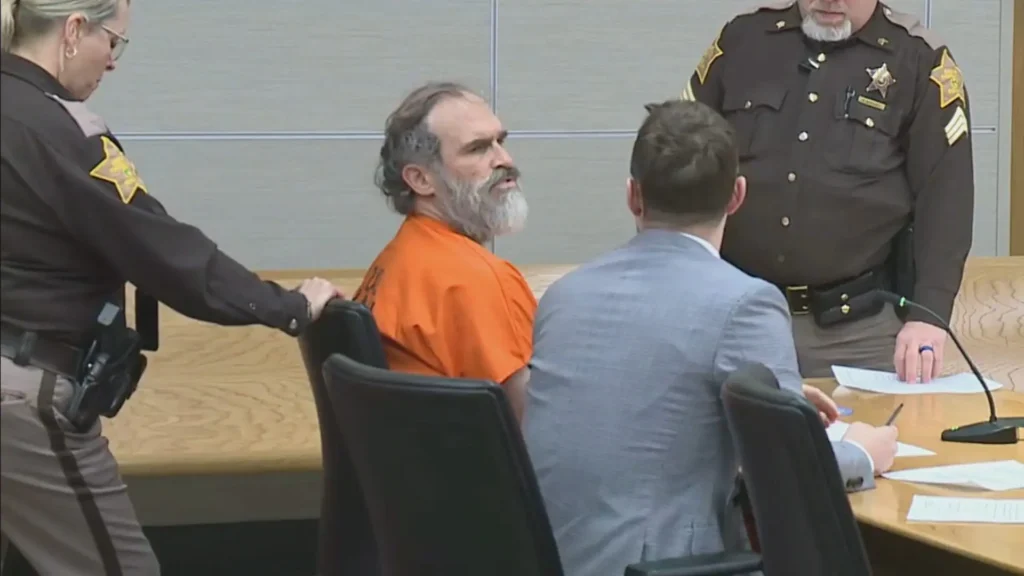
Meta Description: Michael Thomas Lewis, accused of stalking WNBA star Caitlin Clark, pleads guilty during his first court appearance amid allegations of persistent harassment.
The Case Unfolds
In a shocking development, Michael Thomas Lewis, a 55-year-old man from Texas, admitted guilt during his first court appearance regarding felony stalking charges against WNBA star Caitlin Clark. Lewis was arrested after allegedly sending over 800 threatening and sexually explicit messages to Clark via social media, causing her significant distress and fear for her safety.
Details of the Allegations
Court documents reveal that Lewis’s harassment began on December 16, with messages detailing his obsessive behavior, including claims of driving past Clark’s home multiple times daily. Prosecutors highlighted that these communications made Clark feel “terrorized” and “intimidated,” prompting her to alter her appearance in public for safety reasons.
Legal Proceedings
During the court session, Lewis expressed his acknowledgment of the charges against him. If convicted, he faces up to six years in prison and a fine of $10,000. The Marion County prosecutor emphasized the importance of victims coming forward in such cases, noting that many women hesitate to report similar incidents due to fear of retaliation.
Impact on Caitlin Clark
Caitlin Clark, a rising star in the WNBA and the Indiana Fever’s rookie of the year, has been vocal about her fears stemming from this ordeal. She reported feeling unsafe even before Lewis arrived in Indianapolis and has taken measures to protect herself since the harassment began.
Community Response
The case has sparked discussions about the safety of athletes and the need for stronger protections against stalking and harassment. Community members have rallied around Clark, supporting her courage in addressing these serious issues publicly.
Conclusion
As the legal process continues, the case serves as a reminder of the challenges faced by public figures regarding personal safety. The outcome will not only affect Lewis but also set a precedent for how similar cases are handled in the future.




